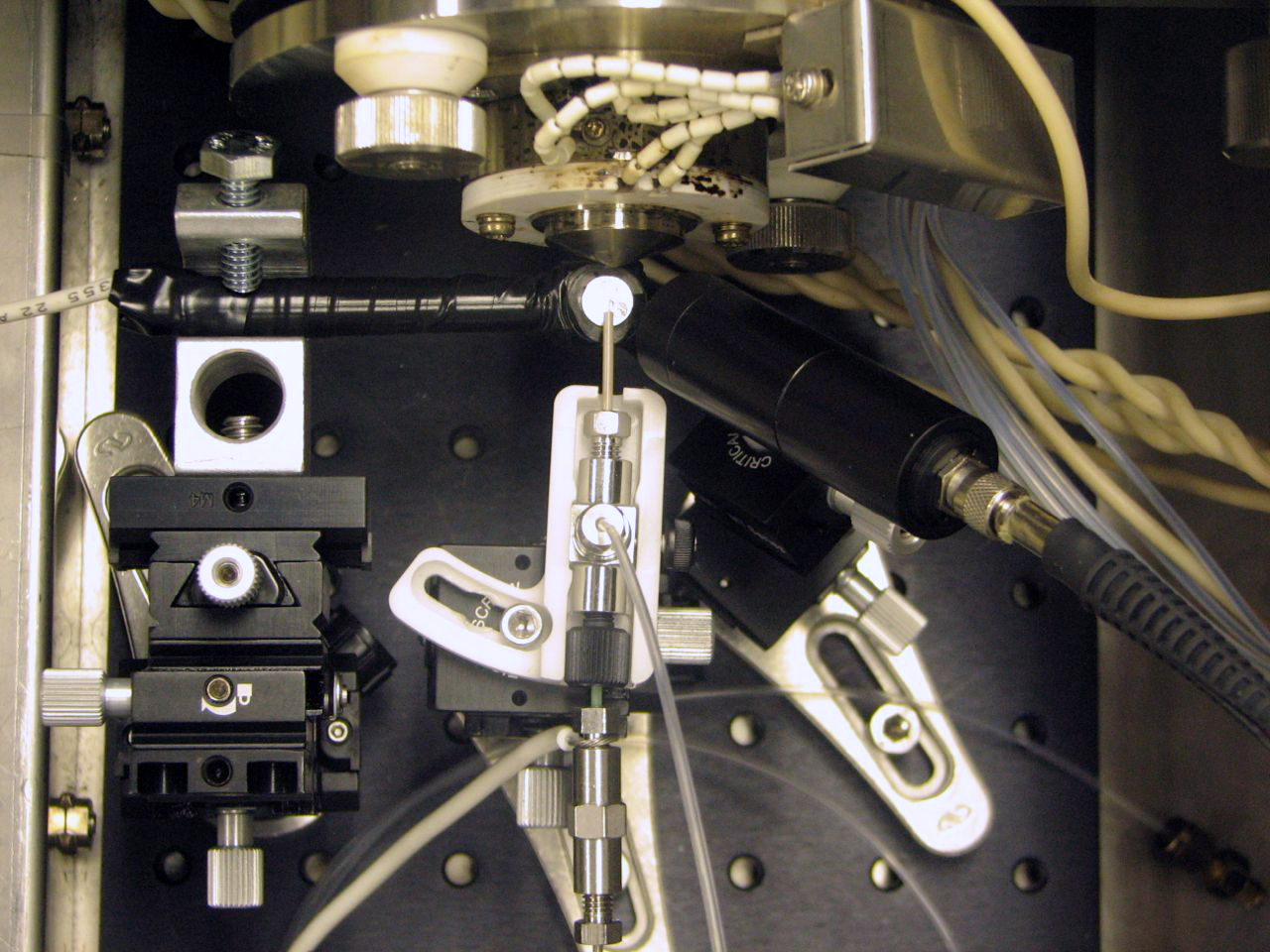
Publications
View Josh Elias’ and Brian DeFelice’s full list of publications on Google Scholar. Below is some recent, relevant work.
Gut microbe dynamics are difficult to predict. Here, researchers at the Huang lab and CZ Biohub SF examine the effects of microbial colony size and existing residents on the long-term success of introduced microbial populations.
Bifidobacteria commonly represents a dominant constituent of human gut microbiomes during infancy, influencing nutrition, immune development, and resistance to infection. Despite interest as a probiotic therapy, predicting the nutritional requirements and health-promoting effects of Bifidobacteria is challenging due to major knowledge gaps. To overcome these deficiencies, the Huang lab and CZ Biohub SF used large-scale genetics to create a compendium of mutant fitness in Bifidobacterium breve.
Here, we present a high-resolution strategy to map subcellular organization using organelle immunocapture coupled to mass spectrometry.
Urine is assayed alongside blood in medicine, yet current clinical diagnostic tests utilize only a small fraction of its total biomolecular repertoire, potentially foregoing high-resolution insight into human health and disease. In this collaboration, the Quake lab, the Bertozzi lab, and SF Biohub’s Mass Spec Platform collaborated to characterize the joint landscapes of transcriptomic and metabolomic signals in human urine. We also compared the urine transcriptome to plasma cell-free RNA, identifying a distinct cell type repertoire and enrichment for metabolic signal.
Cell size is tightly controlled in healthy tissues and single-celled organisms, but it remains unclear how cell size influences physiology. Increasing cell size was recently shown to remodel the proteomes of cultured human cells, demonstrating that large and small cells of the same type can be compositionally different. In the present study, we utilize the natural heterogeneity of hepatocyte ploidy and yeast genetics to establish that the ploidy-to-cell size ratio is a highly conserved determinant of proteome composition.
CZ Biohub SF Investigator Kerwyn Huang’s team and the SF Biohub’s Mass Spec Platform developed a framework to distinguish the effects of resource competition from other interaction mechanisms by integrating data from growth measurements in spent media, synthetic community assembly, and metabolomics with consumer-resource models.
Rapid QC-MS actively listens for newly created LC-MS raw files and automatically quantifies internal, external, and reference standards producing interactive plots on a browser based dashboard. These visualizations allow researchers to quickly verify and interrogate the quality of the data being generated by their LC-MS system.
CZ Biohub SF Investigator Peter Turnbaugh’s team and the SF Biohub Mass Spec Platform collaborated to investigate the unique metabolism of the prevalent and disease-linked Actinobacterium Eggerthella lenta. The application of stable isotope-resolved metabolomics revealed that E. lenta uses acetate as a key carbon source while catabolizing arginine to generate ATP.
In the first demonstration of diet-induced liver regeneration, this study with Stanford Medicine shows that intermittent fasting spurs rapid liver cell proliferation in mice.
It is commonly assumed that protein concentrations generally remain constant across cells of a given type. CZ Biohub postdoctoral fellow, Mike Lanz demonstrated this is not the case, revealing new dimensions of cellular regulation. This work resulted from a close collaboration with CZ Biohub Investigator Jan Skotheim at Stanford.
Our study bridges a gap in understanding and predicting MHC-II antigen presentation.
Here, we develop a liquid chromatographic-mass spectrometric workflow for untargeted sequence analysis of the urinary peptidome.
Collectively, our microbiome-focused metabolomics pipeline and interactive metabolomics profile explorer are a powerful tool for characterizing microorganisms and interactions between microorganisms and their host.
Here, we describe our efforts to optimize purification and mass spectrometer parameters, ultimately allowing us to identify as many as almost 5000 pMHC I and 7400 pMHC II from as little as 2.5 × 107 Raji cells each.
Here, we describe TagGraph, a computational tool that overcomes both challenges with an unrestricted string-based search method that is as much as 350-fold faster than existing approaches, and a probabilistic validation model that we optimized for PTM assignments.
To demonstrate the effectiveness of MS-FLO, we processed 28 biological studies and uploaded raw and results data to the Metabolomics Workbench website, encompassing 1481 chromatograms produced by two different data processing programs used in-house (MZmine2 and later MS-DIAL).
We have investigated the potential of metabolomics to discover blood-based biomarkers relevant to lung cancer screening and early detection.
We provide a freely available computer-generated tandem mass spectral library of 212,516 spectra covering 119,200 compounds from 26 lipid compound classes, including phospholipids, glycerolipids, bacterial lipoglycans and plant glycolipids.


